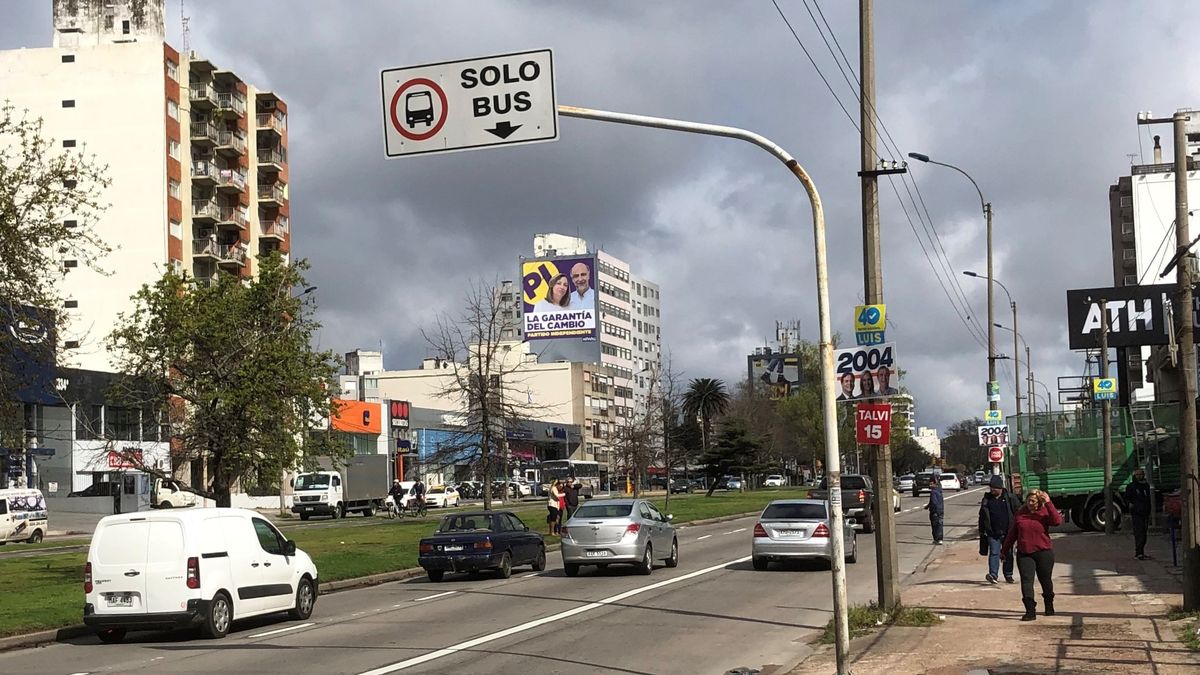The minister of Transport and Public Works (MTOP), Jose Luis Falero, referred to the project for a train-tram that will link the City Old (Montevideo) and El Pinar (Cannelloni), and responded to the sayings of President of both the Uruguayan Chamber of Transportation and the Cutcsa company, Juan Salgado: “I don’t like things being imposed on me,” he said.
Since its announcement, the future train-tram (which is barely a project authorized to carry out feasibility studies) that seeks to improve connectivity and transit in the metropolitan area has generated several controversies and comments from the different actors involved in transportation in the area. . In this regard, one of the last to refer to the issue was Salgado, who considered that the current metropolitan carriers they should be the ones operating the new medium vehicle.
“It was raised in the meeting with crystal clarity that we do not believe, and the Secretary of the Presidency agreed with us on that, that there is another way to operate that train that is not with the traditional transport companies of Montevideo and the metropolitan area,” Salgado said on the subject after a meeting with the secretary of Chair, Alvaro Delgado, in Executive Tower.
This morning, when asked about it in the Informal Breakfasts program, Minister Falero affirmed that he welcomes the fact that the current urban and suburban transport companies in the metropolitan area are involved in the operation of the train, but he reaffirmed that “all possibilities” are on the analysis table at the moment. Likewise, he remarked that he does not like to have things imposed on him.
What is expected of the project?
On tender, Falero argued that it can indicate both that the winning company builds the train and is in charge of “civil works and operating” the service; such as that it only do the construction and that the operation pass into the hands of the State, either on its own or through the current transport companies. “Both are valid,” said the head of the MTOP.
“That is why the next stage is key. Because I understand that beyond the consultation with the municipalities, there must be consultations with transport companieswhich may be interested in operating these lines”, affirmed the minister, adding that “possibly next week the transport companies and the two municipalities will be summoned to generate exchange”.
In any case, the Minister of Transport indicated that, in his opinion, it will be necessary for the train and the bus companies work in a coordinated and complementary way. “This train has to be complementary to the current public transport system. Perhaps there are shorter bus lines, but they have to be, you have to reach all the neighborhoods,” he said, adding: “In the terminals you have to connect with the current lines, make passenger exchanges so that all the neighborhoods are included . It has to be something complementary. The bus lines are going to have to be the ones that bring the passenger closer to the trunk network. You have to analyze the structure and logistics, and why not increase the routes of lines that today have few? Maybe shorter routes, but with more services”.
With this scenario, Falero affirmed that “Salgado’s statements are reasonable.” “When they say that you have to operate on their part, you can do it, the whole system must work, but it is necessarily an obligation,” he said, adding: “I estimate that an effort should be made to make them part of the operation, but it’s not like we have an obligation to do so. It is convenient that the transfer of passengers from shorter lines to the trunk line is given by the same operators, I am in favor of that. But I don’t like that things are imposed on me, I think that is not what the State should do with respect to the operators. That they accompany yes, but that they be yes or yes because otherwise nothing, no. We have to contemplate them and we need them, without a doubt”.
Asked if, in the event that the current metropolitan transport companies take over the operation, other demands or more controls on the quality of the service will be put on the table, Falero replied: “When one transfers an operation, it will have to be in the conditions that the State requires. There are transport companies that have made efforts to improve and provide a better serviceand I would like that to be taken into account”.
Source: Ambito




